
Tranquil Treasures of Satun
Nestled in the southern part of Thailand, Satun is a serene and less-explored gem. This coastal city offers a perfect blend of natural beauty and cultural richness. Satun is part of the UNESCO Global Geopark, known for its stunning limestone formations, caves, and pristine beaches. The lush greenery and crystal-clear waters make it a haven for nature lovers and adventure enthusiasts alike. The city is a gateway to the Tarutao National Marine Park, which comprises several islands with diverse marine life and vibrant coral reefs. Koh Lipe, often referred to as the 'Maldives of Thailand,' is a must-visit for its white sandy beaches and turquoise waters. For those who appreciate history and culture, the Satun National Museum, housed in a beautiful colonial-style building, offers insights into the region's past. Satun is also renowned for its warm and welcoming local community. The city's markets and eateries provide a taste of authentic Thai cuisine, with an emphasis on fresh seafood. Whether you are kayaking through mangrove forests, exploring ancient caves, or simply relaxing by the beach, Satun promises a tranquil and enriching experience for every traveler.
Local tips in Satun
- Visit during the dry season (November to April) for the best weather and clearer waters.
- Carry cash as many local shops and eateries may not accept credit cards.
- Rent a scooter or bike to explore the city and nearby attractions at your own pace.
- Try the local seafood dishes, especially at the night markets for fresh and authentic flavors.
- Pack eco-friendly sunscreen to protect the marine life when snorkeling or diving.
Tranquil Treasures of Satun
Nestled in the southern part of Thailand, Satun is a serene and less-explored gem. This coastal city offers a perfect blend of natural beauty and cultural richness. Satun is part of the UNESCO Global Geopark, known for its stunning limestone formations, caves, and pristine beaches. The lush greenery and crystal-clear waters make it a haven for nature lovers and adventure enthusiasts alike. The city is a gateway to the Tarutao National Marine Park, which comprises several islands with diverse marine life and vibrant coral reefs. Koh Lipe, often referred to as the 'Maldives of Thailand,' is a must-visit for its white sandy beaches and turquoise waters. For those who appreciate history and culture, the Satun National Museum, housed in a beautiful colonial-style building, offers insights into the region's past. Satun is also renowned for its warm and welcoming local community. The city's markets and eateries provide a taste of authentic Thai cuisine, with an emphasis on fresh seafood. Whether you are kayaking through mangrove forests, exploring ancient caves, or simply relaxing by the beach, Satun promises a tranquil and enriching experience for every traveler.
When is the best time to go to Satun?
Iconic landmarks you can’t miss
Tarutao National Park
Discover Tarutao National Park: A Tropical Haven of Untouched Nature, Pristine Beaches, and Vibrant Marine Life in Thailand's Andaman Sea.
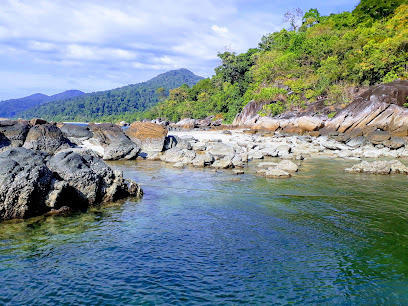
Namtok Wang Sai Thong
Explore the enchanting Namtok Wang Sai Thong, a serene waterfall in Satun, Thailand, perfect for relaxation, adventure, and nature photography.
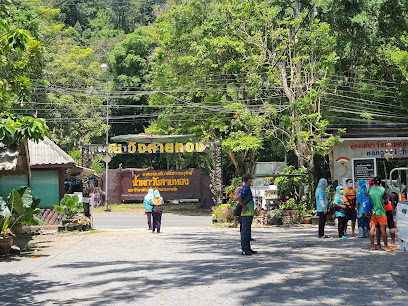
Thale Ban National Park
Discover the stunning landscapes and diverse wildlife of Thale Ban National Park, a natural wonder in Satun, Thailand, perfect for nature lovers and adventurers.
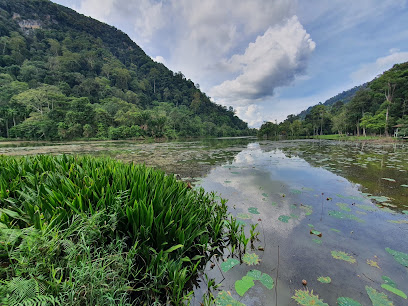
Tammalang Pier
Discover the beauty of Thailand from Tammalang Pier, your gateway to island adventures and local charm in Satun Province.
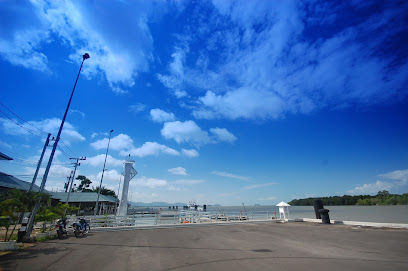
Phu Pha Phet Cave
Discover the breathtaking beauty of Phu Pha Phet Cave, a stunning natural wonder in Satun, Thailand, perfect for adventurers and nature lovers alike.
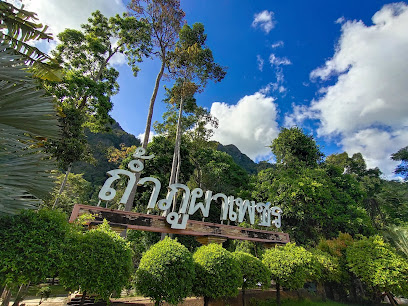
Satun National Museum Kuden Mansion
Explore the rich cultural heritage of Satun at the National Museum Kuden Mansion, where history and tradition come alive through captivating exhibits.
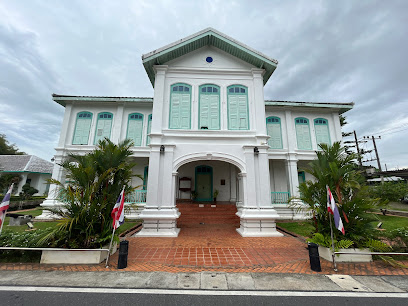
Prasat Hin Pun Yod, Khao Yai Island
Explore the breathtaking nature preserve of Prasat Hin Pun Yod on Khao Yai Island, a hidden gem for nature lovers and adventure seekers in Thailand.
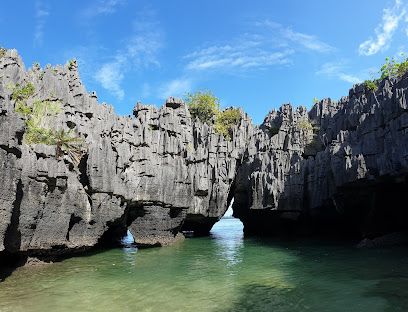
Satun Central Mosque
Discover the architectural beauty and cultural significance of Satun Central Mosque, a serene place of worship and a must-see tourist attraction in Mueang Satun.
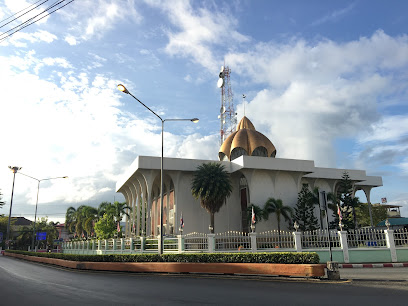
Wat Chanathip Chaloem
Experience the tranquility and cultural richness of Wat Chanathip Chaloem, a must-visit Buddhist temple in Satun, Thailand.
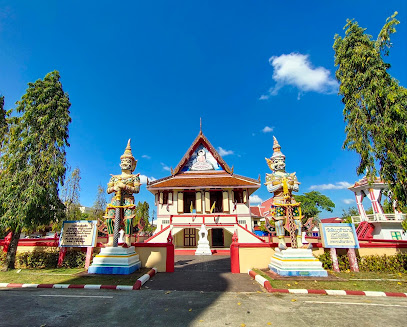
V Valley Resort
Discover tranquility at V Valley Resort, a serene getaway in Satun, Thailand, blending modern comforts with nature's beauty for an unforgettable retreat.
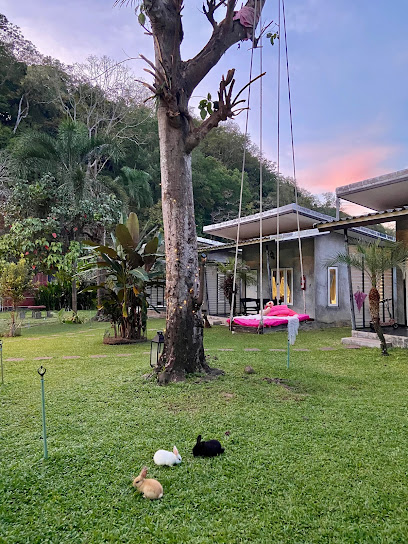
Tham Le Stegodon (Satun UNESCO Global Geopark)
Discover the breathtaking Tham Le Stegodon in Satun UNESCO Global Geopark, where nature's artistry meets thrilling adventures in a geological wonderland.
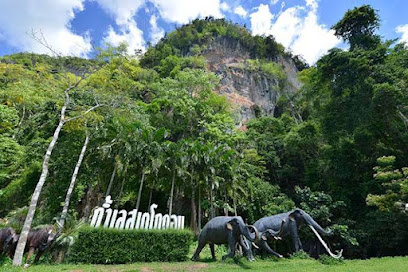
Khao To Ngai Geological Time Boundary เขตข้ามกาลเวลา
Discover the Khao To Ngai Geological Time Boundary, a stunning natural attraction in Satun, Thailand, showcasing the Earth's fascinating geological history.
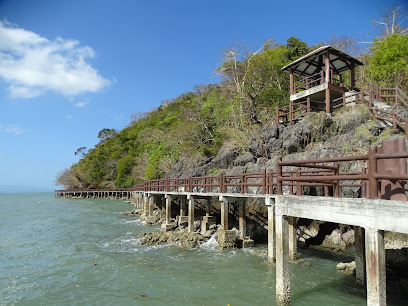
ตะวันอพาร์ทเม้นท์ ThawanApartment
Discover comfort and convenience at Thawan Apartment in Satun, the perfect base for your Thai adventure with modern amenities and warm hospitality.
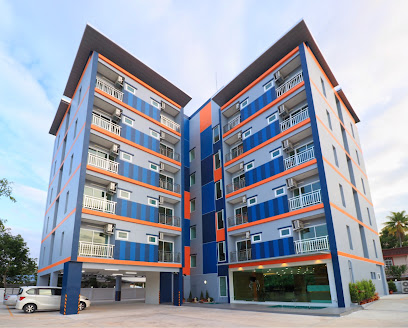
Satun Bus Station
Explore the beauty of Satun from the bustling Satun Bus Station, your gateway to stunning islands and rich cultural experiences in southern Thailand.
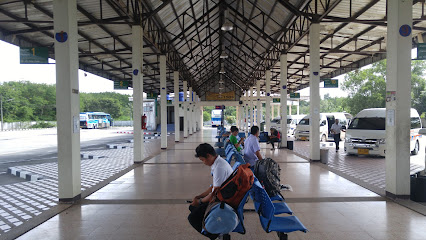
Satun Street Art
Immerse yourself in the vibrant colors of Satun Street Art, where creativity and culture collide in a breathtaking open-air gallery.
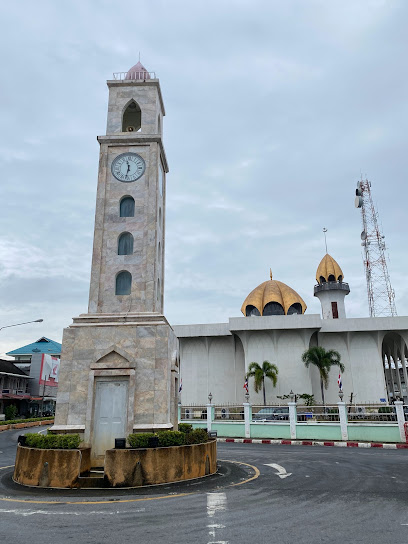
Unmissable attractions to see
Kilim Geoforest Park
Discover the breathtaking Kilim Geoforest Park in Langkawi, where lush mangroves and diverse wildlife create an unforgettable ecological adventure.
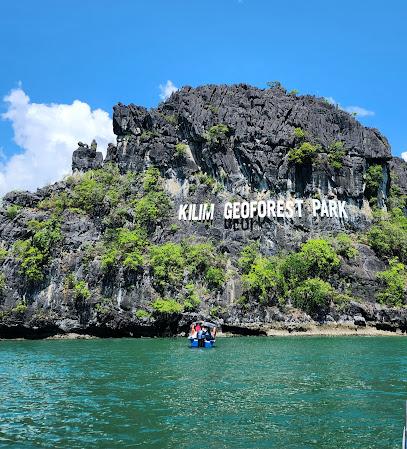
Langkawi Wildlife Park
Discover the enchanting Langkawi Wildlife Park, where you can connect with exotic wildlife in a serene natural setting, perfect for families and nature lovers alike.

Tanjung Rhu Beach
Discover the serene beauty and adventure of Tanjung Rhu Beach in Kedah, Malaysia, a perfect getaway for relaxation and exploration.
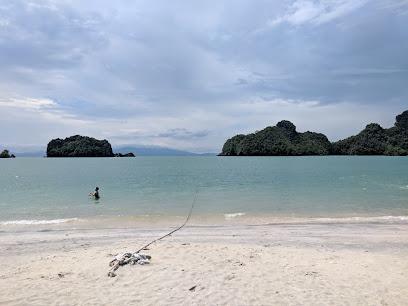
Crocodile Adventureland Langkawi
Explore the thrilling world of crocodiles at Crocodile Adventureland Langkawi, a top wildlife park featuring educational shows and interactive experiences.
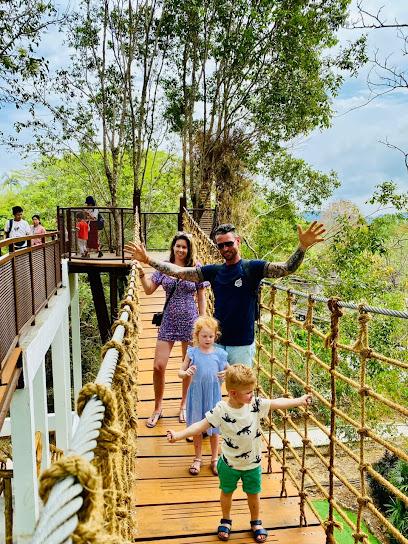
Beras Terbakar, Kampung Raja, Langkawi, Kedah.
Explore Beras Terbakar in Langkawi, a historical landmark steeped in rich culture and captivating stories of the island's agricultural heritage.
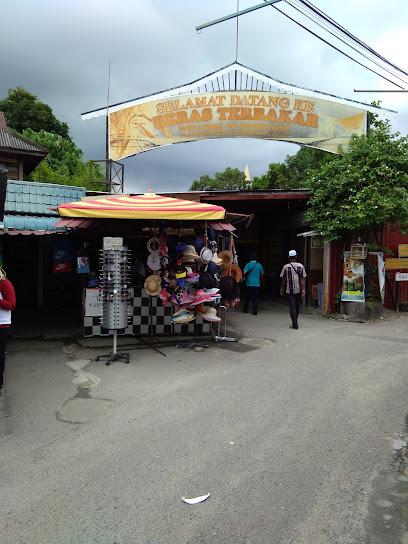
Dream Forest Langkawi
Discover the enchanting beauty and thrilling adventures at Dream Forest Langkawi, where nature meets excitement in a unique theme park experience.
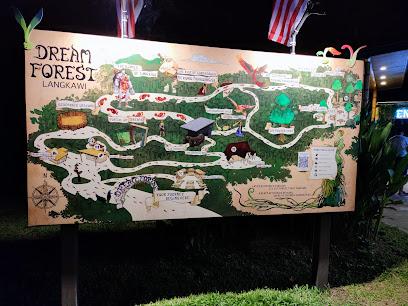
MAHA Tower
Discover breathtaking views and a delightful experience at MAHA Tower, the must-visit attraction in Langkawi, Malaysia.
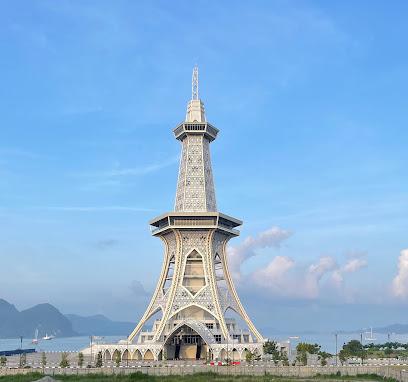
Taman Agroteknologi MARDI Langkawi
Explore the agricultural marvels of Taman Agroteknologi MARDI Langkawi, where innovation meets nature in a stunning tropical setting.
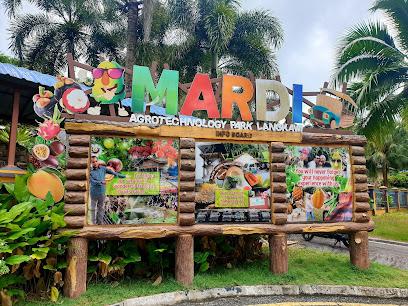
Pantai Pasir Hitam
Discover the tranquil beauty of Pantai Pasir Hitam, Kedah's unique black sand beach, perfect for relaxation and local flavors.
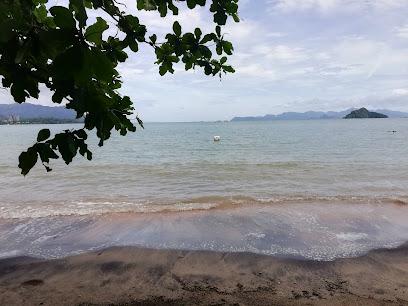
Namtok Wang Sai Thong
Explore the breathtaking Namtok Wang Sai Thong, a stunning waterfall in Satun, Thailand, perfect for nature lovers and adventure seekers.
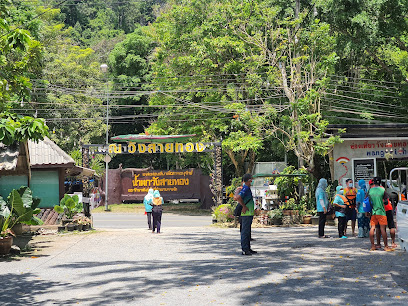
Splash Out Langkawi
Discover Splash Out Langkawi: Malaysia's ultimate water park experience with thrilling rides and family-friendly fun amidst tropical beauty.
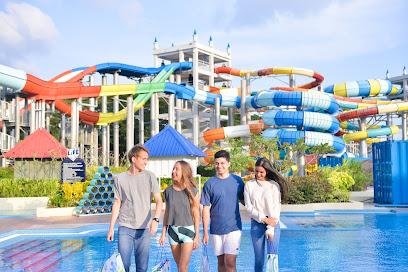
Gua Kelawar
Discover Gua Kelawar, Langkawi's enchanting bat cave, a natural marvel filled with wildlife and stunning geological formations.
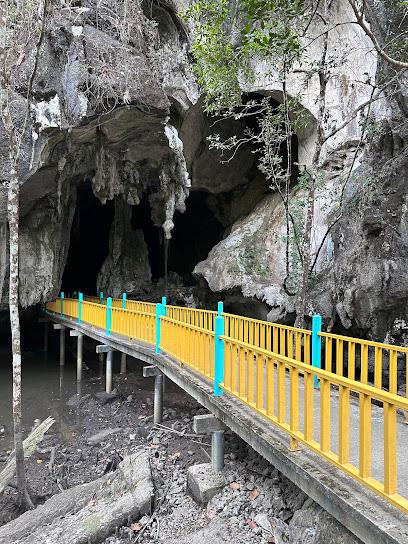
Eagle Square
Explore Eagle Square, Langkawi – a breathtaking landmark with stunning views, cultural significance, and a perfect backdrop for memorable photos.
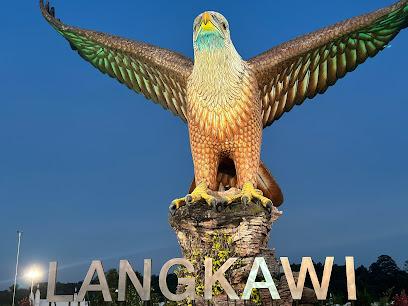
Thale Ban National Park
Explore the breathtaking landscapes and serene lotus ponds of Thale Ban National Park in Satun, Thailand, a true paradise for nature lovers.
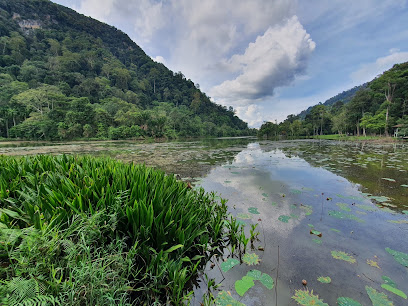
Sandy Skulls Beach
Discover the serene beauty and vibrant activities at Sandy Skulls Beach in Langkawi, a paradise for sun-seekers and adventure enthusiasts alike.
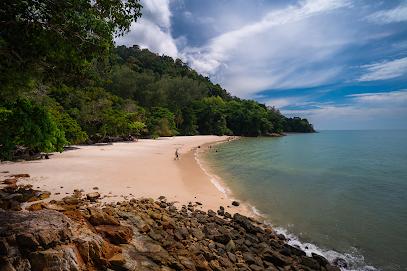
Essential places to dine
Papaya Mom Restaurant
Discover authentic Thai cuisine at Papaya Mom Restaurant on Ko Tarutao's lively Walking Street—where every dish tells a story.
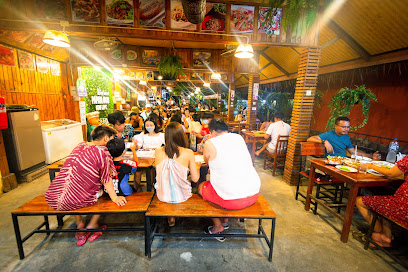
Tonkow Restaurant
Discover Tonkow Restaurant on Koh Tarutao for fresh seafood and authentic Thai flavors amidst stunning tropical scenery.
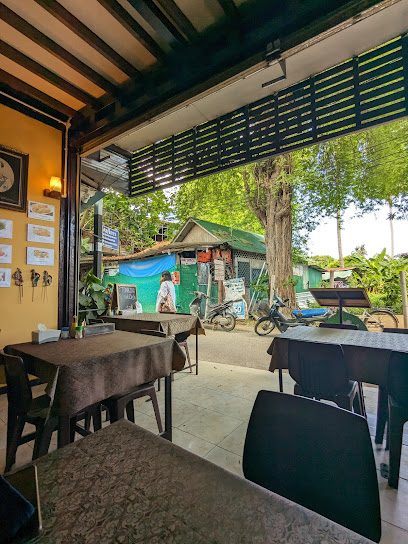
FA Sai Restaurant
Experience authentic Thai cuisine at FA Sai Restaurant in La-ngu District - where every dish tells a story.
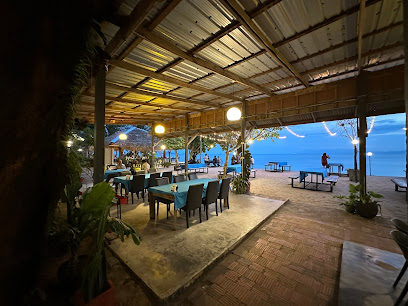
The Rice by Larnkhao Restaurant
Experience authentic Thai cuisine in La-ngu at The Rice by Larnkhao - where every dish tells a story.
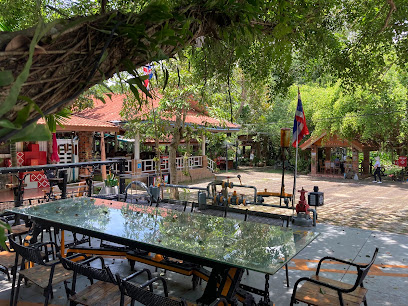
Prik Thai Foods Coffee & Desserts
Discover authentic halal Thai cuisine at Prik Thai Foods Coffee & Desserts in Satun - a culinary delight not to be missed.
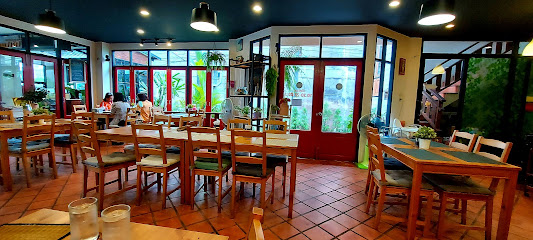
On The Rocks
Discover culinary delights at On The Rocks in Koh Lipe, where stunning beach views meet exquisite Thai flavors.
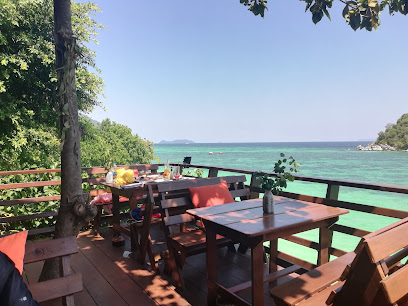
Nergara Restaurant
Discover authentic Halal cuisine at Nergara Restaurant in Satun - a must-visit destination for food lovers seeking fresh and flavorful dishes.
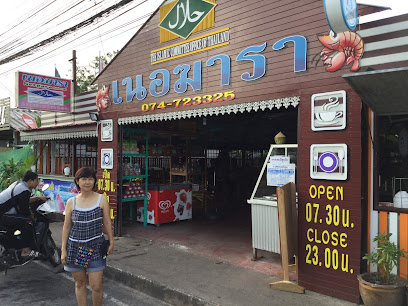
Nong Nee Restaurant
Discover authentic Thai-Chinese cuisine at Nong Nee Restaurant in Satun—where every dish tells a story.
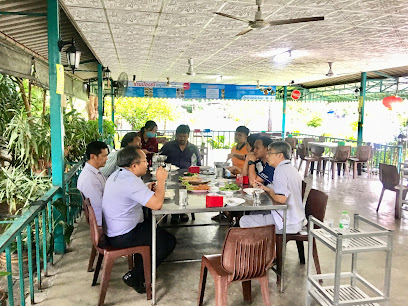
Roti Kampong Cafe
Experience authentic halal Thai cuisine at Roti Kampong Cafe in Satun – where every dish tells a story.
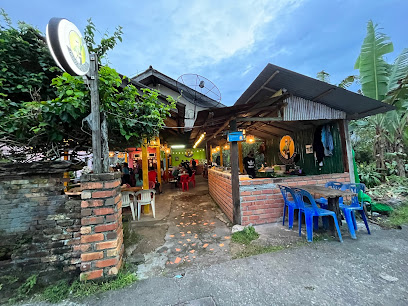
BungRoon Restaurant
Discover the rich flavors of Thailand at BungRoon Restaurant - your ultimate Halal dining destination in Satun.
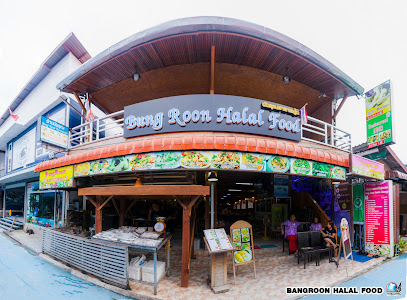
Krua Tangke Halal Food
Experience authentic Thai halal cuisine at Krua Tangke Halal Food in Satun - where flavor meets tradition.
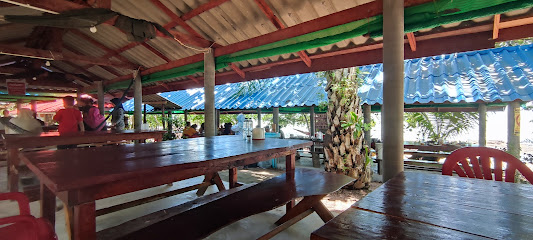
Paktam Seafood Tanjung Pauh, Satun
Experience authentic Thai flavors with fresh seafood at Paktam Seafood Tanjung Pauh in Satun - a must-visit culinary destination!
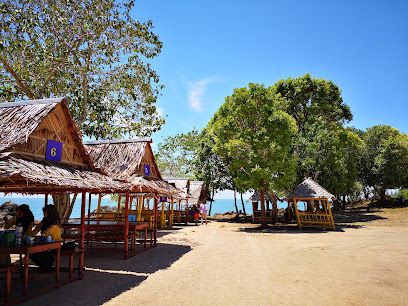
Benjamin Restaurant, Satun
Experience authentic Thai halal cuisine at Benjamin Restaurant in Satun - where flavors come alive in every dish!
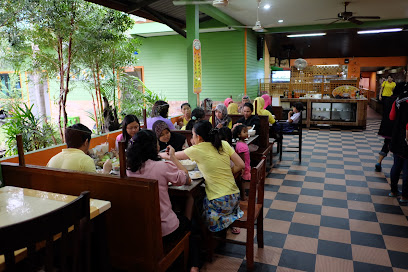
Serene Restaurant
Experience authentic Thai flavors amidst stunning natural beauty at Serene Restaurant on Ko Tarutao.
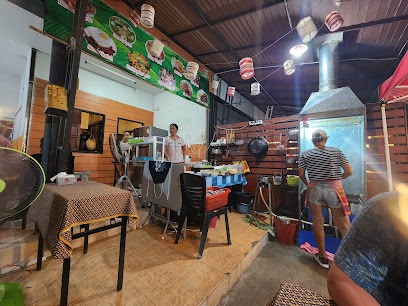
นุชโรตี สาขา2
Experience delicious Thai cuisine tailored for Western tastes at Nuch Roti Branch 2 in picturesque Ko Tarutao.
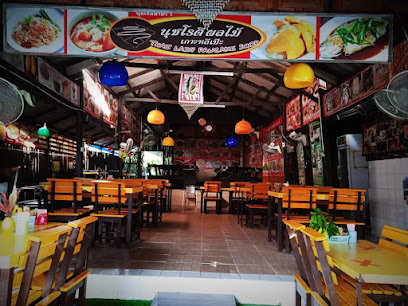
Markets, malls and hidden boutiques
Big C Supercenter Satun
Discover the vibrant shopping experience at Big C Supercenter Satun, where local flavors and everyday essentials meet in a bustling hypermarket.
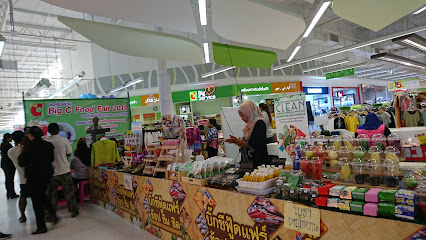
UnLocated.
Discover the cozy charm of UnLocated in Satun, where exceptional coffee meets delightful baked goods in a serene ambiance.
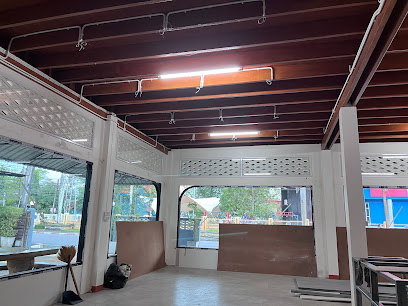
MR.DIY
Explore MR.DIY in Satun, Thailand for a vast selection of home improvement and hardware products at competitive prices, perfect for every DIY enthusiast.
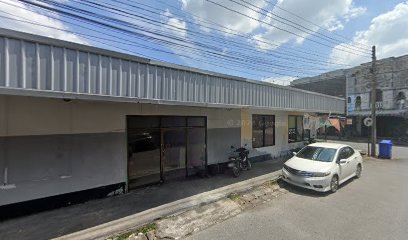
D.I.Y. สตูล
Discover unique local crafts and everyday essentials at D.I.Y. Satun, the charming general store in the heart of Satun.
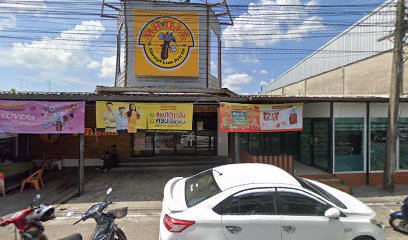
KEITH homemade bakery
Savor homemade pastries and aromatic coffee at KEITH Homemade Bakery in Satun, a delightful stop for tourists seeking local flavors.
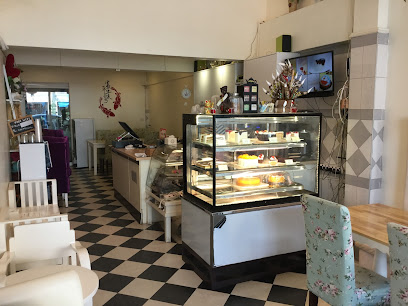
ร้านอำพรรณสปอร์ตฟิชชิ่ง สตูล
Discover the finest fishing gear and expert advice at ร้านอำพรรณสปอร์ตฟิชชิ่ง in Satun, Thailand – your ultimate fishing destination.
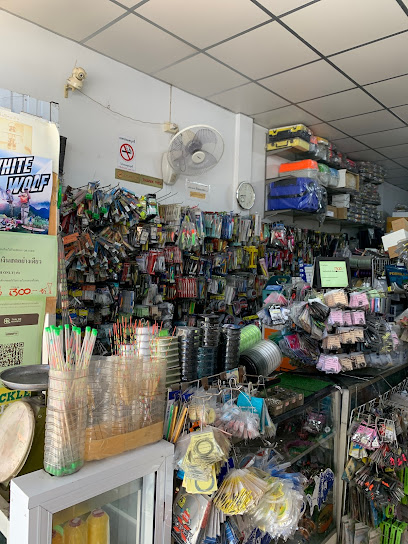
ช้างคัพ 636 CHANG'S CUP 636
Discover the delightful flavors of bubble tea and coffee at Chang's Cup 636 in Satun, Thailand, a must-visit for beverage enthusiasts.
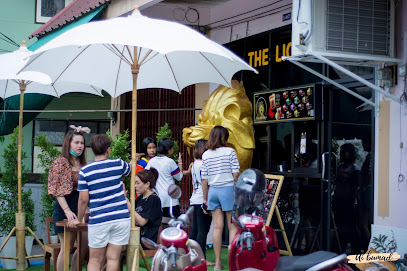
สีสันบาติก
Immerse yourself in the vibrant art of batik at สีสันบาติก, where tradition meets contemporary fashion in the heart of Satun.
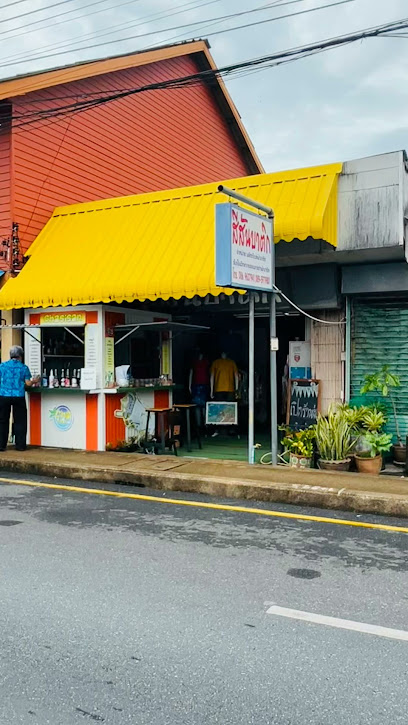
BAKT cafe (SATUN)
Discover the delightful charm of BAKT Cafe in Satun, where exceptional coffee, bubble tea, and desserts await to enrich your travel experience.
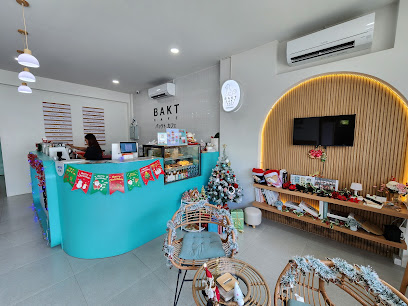
ร้านเฌอฟ้า (Cher Fah Gifts and Souvenirs)
Explore a delightful array of authentic Thai gifts and health foods at Cher Fah Gifts and Souvenirs in Satun, perfect for unique souvenirs.
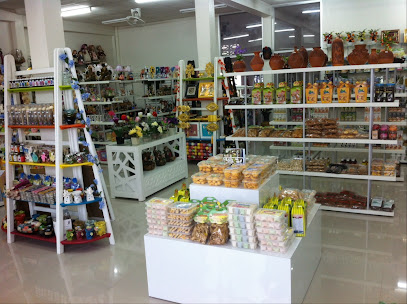
กาชาปองคาเฟ่รินรินสตูล
Experience the warmth of local culture at กาชาปองคาเฟ่รินรินสตูล, a charming coffee shop in Satun offering delightful brews and a cozy atmosphere.
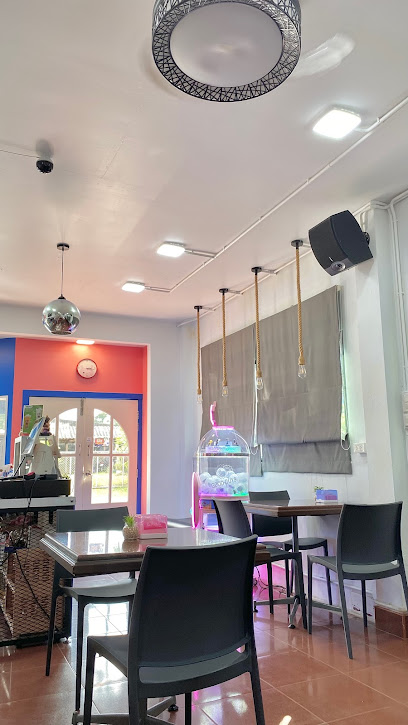
The Wash ใกล้รพ.สตูล
Experience hassle-free laundry services at The Wash, a 24-hour self-service laundry store in Satun, Thailand.
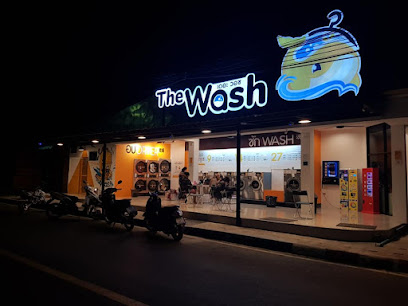
BBกัญ Cannabis Shop Satun
Explore the vibrant cannabis culture at BBกัญ Cannabis Shop in Satun, where quality products meet a friendly atmosphere.
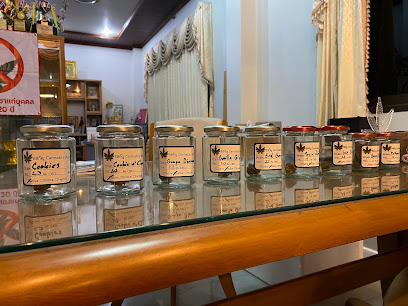
Satunva Cannabis Shop
Discover the vibrant atmosphere and high-quality cannabis offerings at Satunva Cannabis Shop in Mueang Satun District, Thailand.
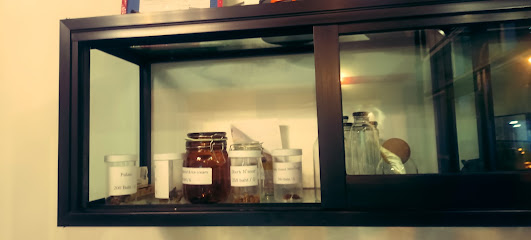
ร้านสายชลแฟชั่น
Discover unique Thai fashion at ร้านสายชลแฟชั่น in Satun, where local craftsmanship meets contemporary style.
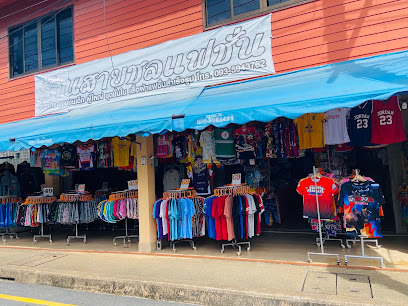
Essential bars & hidden hideouts
Benjamin Restaurant, Satun
Discover the essence of Thai cuisine at Benjamin Restaurant, a Halal haven in Satun, serving authentic dishes in a welcoming atmosphere.
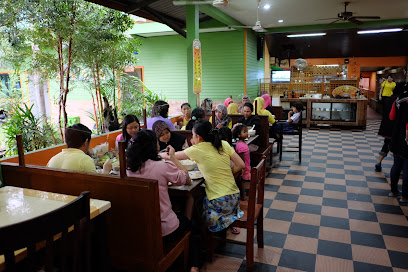
บ้านหวันแดงสตูล
Immerse yourself in local nightlife at บ้านหวันแดงสตูล, the vibrant pub in Satun offering a unique blend of drinks, music, and culture.
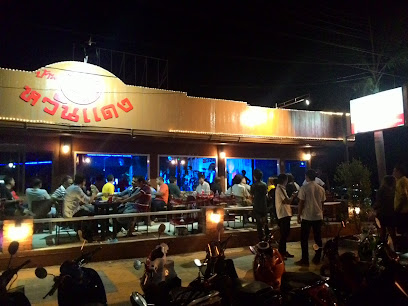
@On's Bar
Discover the vibrant ambiance of @On's Bar in Satun, where local culture meets delightful dining and a welcoming atmosphere.
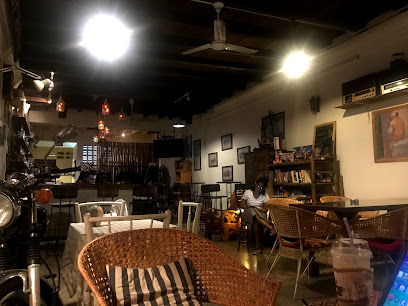
@On’s The Kitchen / Guesthouse
Experience authentic Thai cuisine and warm hospitality at @On’s The Kitchen / Guesthouse in Satun, a perfect blend of dining and comfort.
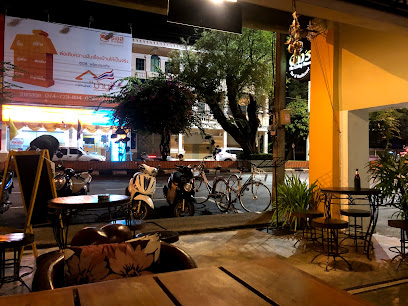
ร้านเดิม หลังโรงพักสตูล
Immerse yourself in the local nightlife at ร้านเดิม หลังโรงพักสตูล, where vibrant drinks and a lively atmosphere await in the heart of Satun.
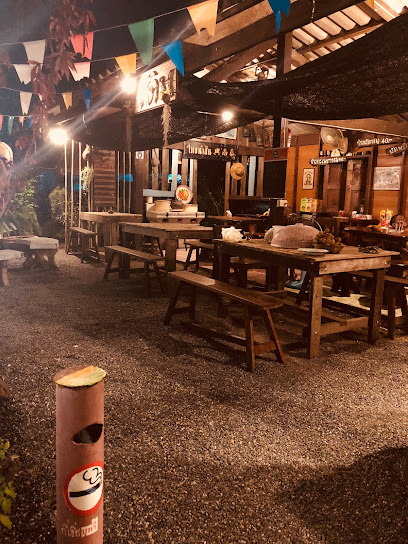
ลานนั่งชิว Byเพอร์เฟครูม
Experience the perfect blend of relaxation and vibrant nightlife at ลานนั่งชิว Byเพอร์เฟครูม, the ultimate bar in Satun for unwinding and socializing.
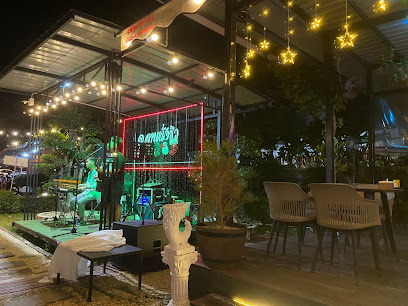
Hops & Hommie Est.2020
Discover the vibrant nightlife of Satun at Hops & Hommie, where friendly vibes and unique drinks create unforgettable experiences.
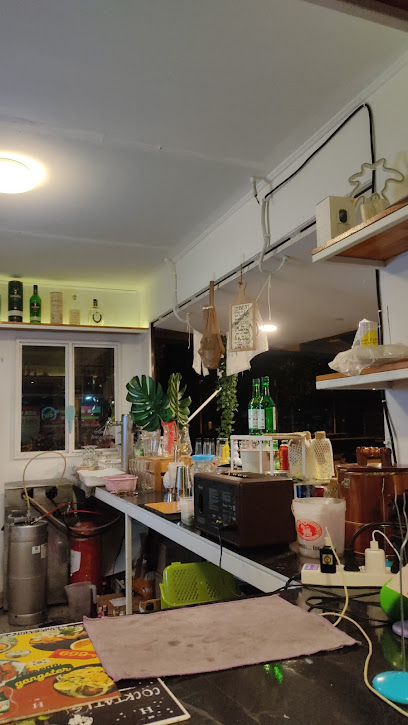
ร้านสุข Suk
Discover the serene charm of ร้านสุข Suk, a delightful beer garden in Satun where relaxation meets local flavor.
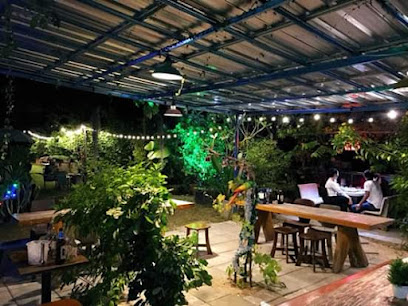
กินปลาคาเฟ่
Experience the rich flavors of Thailand at กินปลาคาเฟ่, a vibrant bar and restaurant in Satun, perfect for tourists seeking an authentic culinary adventure.
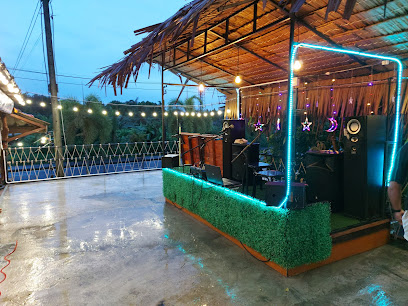
up on rooftop bar
Experience stunning views and refreshing cocktails at Up on Rooftop Bar, Satun's top spot for relaxation and vibrant nightlife.
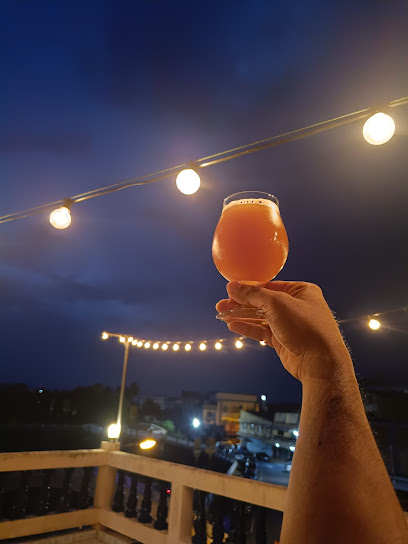
Bar Seafood Cafe Restaurant
Experience the flavors of the ocean at Bar Seafood Cafe, a delightful restaurant in Mueang Satun, perfect for seafood lovers looking for authentic local cuisine.
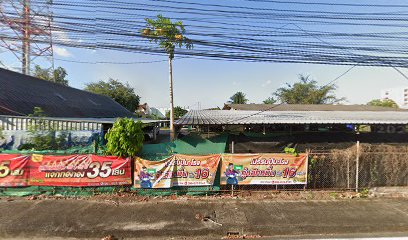
Kakole
Discover the vibrant ambiance of Kakole, where local flavors and a lively atmosphere come together in the heart of Satun, Thailand.
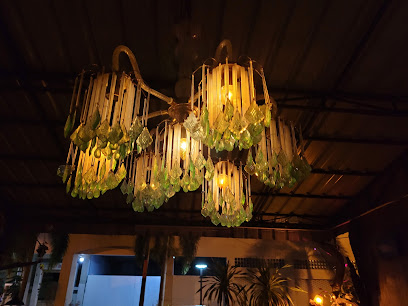
Sometime Karaoke
Experience unforgettable nights filled with music and laughter at Sometime Karaoke, the premier karaoke bar in Satun, Thailand.
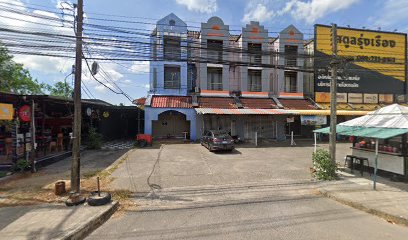
ชาเลนจ์บาร์แอนด์คาราโอเกะ
Chalenj Bar and Karaoke: Your Go-To Spot for Unforgettable Nights of Music and Fun in Satun, Thailand.
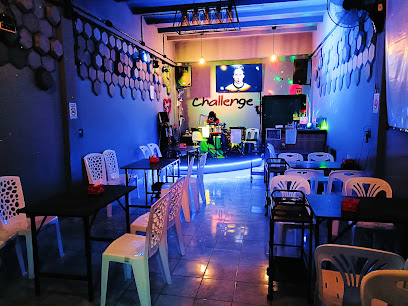
Local Phrases
-
- Helloสวัสดี
[sawasdee] - Goodbyeลาก่อน
[la kon] - Yesใช่
[chai] - Noไม่
[mai] - Please/You're welcomeโปรด/ยินดีต้อนรับ
[proht/yin dee dton rub] - Thank youขอบคุณ
[kop khun] - Excuse me/Sorryขอโทษ
[kor tord] - How are you?สบายดีไหม?
[sabai dee mai?] - Fine. And you?สบายดีค่ะ คุณล่ะ?
[sabai dee ka kun la?] - Do you speak English?คุณพูดภาษาอังกฤษได้ไหม?
[kun poot paa saa ang grit dai mai?] - I don't understandฉันไม่เข้าใจ
[chan mai khao jai]
- Helloสวัสดี
-
- I'd like to see the menu, pleaseขอดูเมนูหน่อยค่ะ
[kor doo menu noi ka] - I don't eat meatฉันไม่กินเนื้อ
[chan mai gin neu] - Cheers!ชนสุด!
[chon sut] - I would like to pay, pleaseขอจ่ายเงินหน่อยค่ะ
[kor jai ngeun noi ka]
- I'd like to see the menu, pleaseขอดูเมนูหน่อยค่ะ
-
- Help!ช่วยด้วย!
[chuay duay] - Go away!ไปห่างๆ!
[pai yang yang] - Call the Police!โทรตำรวจ!
[tor tamruat] - Call a doctor!โทรหมอ!
[tor mor] - I'm lostฉันหลงทาง
[chan long tang] - I'm illฉันไม่สบาย
[chan mai sabai]
- Help!ช่วยด้วย!
-
- I'd like to buy...ฉันอยากซื้อ...
[chan yahk seu] - I'm just lookingฉันแค่ดู
[chan kae doo] - How much is it?ราคาเท่าไหร่คะ?
[ra ka thao rai ka] - That's too expensiveแพงเกินไป
[paeng geun pai] - Can you lower the price?ลดราคาได้ไหม?
[lot ra ka dai mai]
- I'd like to buy...ฉันอยากซื้อ...
-
- What time is it?ตอนนี้เวลาเท่าไหร่
[ton nee welaa thao rai] - It's one o'clockเวลาหนึ่งโมง
[welaa neung mong] - Half past (10)สามครึ่ง
[sam krung] - Morningเช้า
[chao] - Afternoonบ่าย
[bai] - Eveningเย็น
[yen] - Yesterdayเมื่อวาน
[meua wan] - Todayวันนี้
[wan nee] - Tomorrowพรุ่งนี้
[proong nee] - 1หนึ่ง
[neung] - 2สอง
[song] - 3สาม
[sam] - 4สี่
[see] - 5ห้า
[ha] - 6หก
[hok] - 7เจ็ด
[jet] - 8แปด
[pet] - 9เก้า
[gao] - 10สิบ
[sip]
- What time is it?ตอนนี้เวลาเท่าไหร่
-
- Where's a/the...?...อยู่ที่ไหน?
[...yu tee nai?] - What's the address?ที่อยู่คืออะไร?
[tee yu keu a rai?] - Can you show me (on the map)?แสดงให้ดูได้ไหม?
[sa dang hai doo dai mai?] - When's the next (bus)?รถประจำตอนไหน?
[rot pra jam ton nai?] - A ticket (to ....)ตั๋ว (ไป...)
[tua (pai...)]
- Where's a/the...?...อยู่ที่ไหน?
History of Satun
-
Satun's history stretches back thousands of years, with evidence of human habitation dating to prehistoric times. Archaeological finds, including ancient tools and pottery, suggest that early communities thrived in the region. These early settlers were likely attracted by the fertile land and abundant fishing opportunities in the Andaman Sea.
-
From the 7th to the 13th centuries, Satun was under the influence of the Srivijaya Kingdom, a powerful maritime empire based in Sumatra. The Srivijaya Kingdom facilitated the spread of Buddhism and fostered trade relations throughout Southeast Asia. Satun became an important stopover point for traders and monks traveling between China, India, and the Malay Peninsula.
-
During the 14th century, Satun came under the control of the Ayutthaya Kingdom, which marked the beginning of its integration into the Siamese realm. The Ayutthaya period brought increased political stability and economic growth, as Satun benefited from its strategic position along trading routes connecting the Andaman Sea to the Gulf of Thailand.
-
Following the fall of Ayutthaya in the 18th century, Satun came under the rule of the Thonburi Kingdom and later the Rattanakosin Kingdom. During this period, Satun's population grew, and its economy diversified. The establishment of new administrative structures helped integrate Satun more closely with the central Thai state.
-
In the 19th century, Satun's strategic location caught the attention of British colonial powers. The Anglo-Siamese Treaty of 1909 formalized the border between British Malaya and Siam, resulting in Satun becoming part of modern-day Thailand. This period also saw the introduction of new administrative practices and infrastructure improvements.
-
Satun is a melting pot of cultures, with a significant population of Thai Malays and ethnic Thais. The region is known for its religious diversity, with Buddhism, Islam, and animist traditions coexisting harmoniously. This cultural mosaic is reflected in local festivals, cuisine, and daily life, making Satun a vibrant and unique destination.
-
In recent decades, Satun has seen significant development, particularly in the tourism sector. Its stunning natural landscapes, including the Tarutao National Marine Park and the Butang Archipelago, have attracted visitors from around the world. Satun's commitment to sustainable tourism ensures that its natural and cultural heritage remains preserved for future generations.
Satun Essentials
-
Satun is located in southern Thailand, near the Malaysian border. The nearest international airport is Hat Yai International Airport, about 100 kilometers away. From Hat Yai, you can take a bus, minibus, or taxi to Satun, which typically takes around 2 hours. There are also direct buses from Bangkok to Satun, although the journey takes approximately 13-15 hours. Alternatively, you can reach Satun via ferry from Langkawi, Malaysia, which is a convenient option for travelers coming from Malaysia.
-
Satun is a small town, making it easy to navigate on foot. For longer distances, local tuk-tuks and motorbike taxis are readily available and affordable. Songthaews (shared pickup trucks) also operate within the town and to nearby areas. Renting a motorbike or bicycle is another popular option for exploring Satun and its surroundings at your own pace.
-
The official currency in Thailand is the Thai Baht (THB). Credit cards are accepted in some hotels, restaurants, and shops, but it is advisable to carry cash, especially in smaller establishments and rural areas. ATMs are widely available in Satun, and currency exchange services can be found in banks and some hotels.
-
Satun is generally a safe destination for tourists. However, it is always wise to take standard precautions. Avoid walking alone at night in unfamiliar areas and keep an eye on your belongings in crowded places. While Satun does not have specific high-crime areas targeting tourists, it is important to stay vigilant and aware of your surroundings.
-
In case of emergency, dial 191 for police assistance or 1669 for medical emergencies. Satun Hospital is the main medical facility in the area. It is recommended to have travel insurance that covers medical emergencies. Pharmacies are available in town for minor health issues and over-the-counter medications.
-
Fashion: Do dress modestly, especially when visiting religious sites. Avoid wearing revealing clothing. Religion: Do respect local customs and traditions. Always remove your shoes before entering temples and cover your shoulders and knees. Public Transport: Do be respectful and give up your seat to elderly passengers. Don’t eat or drink on public transport. Greetings: Do greet people with a 'wai' (a Thai greeting with palms pressed together). A smile goes a long way. Eating & Drinking: Do try local delicacies and accept food offerings graciously. Don’t point your feet at people or objects, as it is considered disrespectful.
-
To experience Satun like a local, visit the morning markets where you can buy fresh produce and traditional Thai goods. Engage with locals, who are often friendly and willing to share stories about the town's history and culture. Don’t miss exploring the stunning islands and national parks, such as Tarutao National Marine Park and Ko Lipe. For a unique experience, attend local festivals and events, which provide insight into Satun's rich cultural heritage.
Trending Landmark in Satun
-
Tarutao National Park
-
Namtok Wang Sai Thong
-
Thale Ban National Park
-
Tammalang Pier
-
Phu Pha Phet Cave
-
Satun National Museum Kuden Mansion
-
Prasat Hin Pun Yod, Khao Yai Island
-
Satun Central Mosque
-
Wat Chanathip Chaloem
-
V Valley Resort
-
Tham Le Stegodon (Satun UNESCO Global Geopark)
-
Khao To Ngai Geological Time Boundary เขตข้ามกาลเวลา
-
ตะวันอพาร์ทเม้นท์ ThawanApartment
-
Satun Bus Station
-
Satun Street Art
Nearby Cities to Satun
-
Things To Do in Langkawi
-
Things To Do in Trang
-
Things To Do in George Town
-
Things To Do in Penang
-
Things To Do in Krabi
-
Things To Do in Nakhon Si Thammarat
-
Things To Do in Phuket
-
Things To Do in Kota Bharu
-
Things To Do in Ipoh
-
Things To Do in Cameron Highlands
-
Things To Do in Surat Thani
-
Things To Do in Koh Samui
-
Things To Do in Kuala Terengganu
-
Things To Do in Medan
-
Things To Do in Ranong










